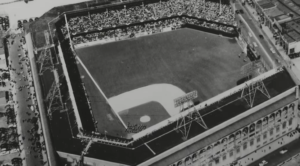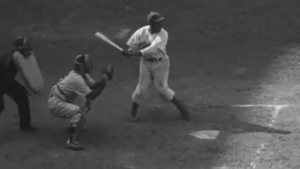Photos: YouTube Screenshots
“The story of the Negro Leagues is undeniably bittersweet,” wrote Andrew Lawrence about the recently released documentary on the confederation of Black baseball teams known as the Negro Leagues.

It’s true. The sweetness comes in part from the teams full of exceptional players, brilliant managers, and savvy owners. American literature scholar Ursula McTaggart writes that the leagues “stressed athletic talent comparable to the white major leagues”—there were players as good, or better, than those playing in the white leagues, and they showed it every game. But the bitterness came as the Negro Leagues quietly ended in the 1960s, the end result of major league baseball opening their doors to all players. It was the end of an era.
But make no mistake, the fight to integrate baseball was a worthy one.
It’s also one that’s often focused on Brooklyn Dodgers executive Branch Rickey and his signing of Jackie Robinson in 1945. A huge step forward, without a doubt. But part of the credit for baseball’s eventual integration belongs with the Black press of the time. As McTaggart writes, it “inserted anti-racist discourse and social consciousness into baseball’s commodity spectacle.”
Black newspapers often spoke to the conscience of the nation. As historian Bill L. Weaver notes, the Black press was “acutely perceptive and remarkably capable of assessing the importance of racial advances in the context of what the race ultimately hoped to achieve.”









